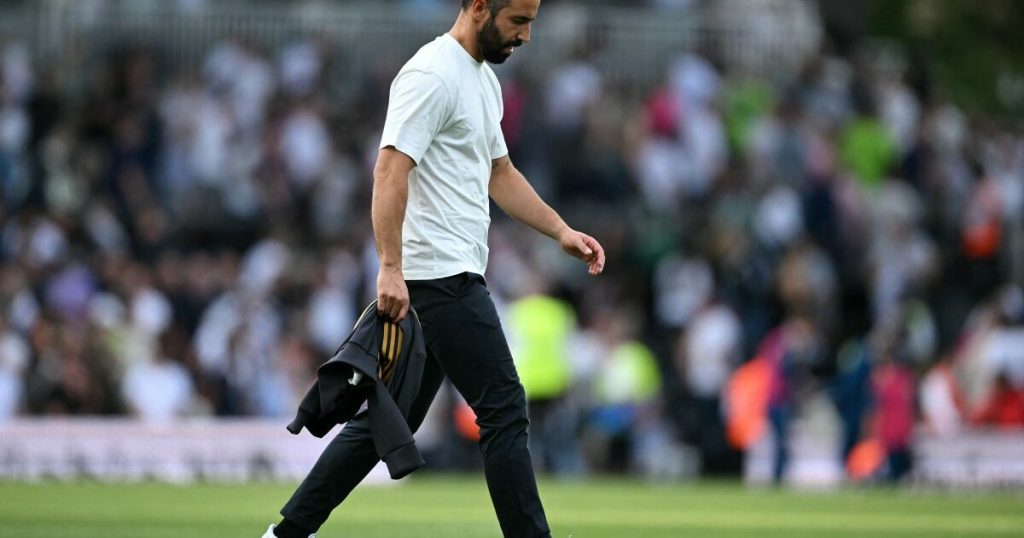Manchester United’s frustrating start to the season continued with a 1-1 draw against Fulham at Craven Cottage, a result that underscores the team’s recurring struggles under manager Ruben Amorim. Despite dominating the first half and earning a penalty, United failed to capitalize on their opportunities and ultimately succumbed to Fulham’s pressure in the latter stages of the match. Amorim expressed his disappointment in his team’s inability to maintain their composure and build on their lead, emphasizing the need for greater maturity and game management if they are to compete at a higher level. The draw leaves United winless in their opening fixtures, raising further questions about the team’s direction under the Portuguese manager.
The match unfolded with United asserting control in the opening 45 minutes, creating several promising chances and earning a penalty following a VAR review for a grappling incident involving Calvin Bassey and Mason Mount. However, captain Bruno Fernandes, typically a reliable penalty taker, uncharacteristically sent his spot-kick soaring over the crossbar. This missed opportunity seemed to weigh heavily on Fernandes and, according to Amorim, affected his performance throughout the remainder of the match. Despite their dominance, United failed to convert their chances and the score remained deadlocked at halftime.
The second half saw United finally break the deadlock, albeit through an own goal by Fulham’s Rodrigo Muniz. However, instead of solidifying their advantage and pushing for a decisive second goal, United retreated into a defensive posture, seemingly content to protect their slender lead. This approach proved costly as Fulham, energized by the home crowd, increased their pressure and eventually found an equalizer through Emile Smith Rowe with 17 minutes remaining. The momentum shift was palpable, with Fulham finishing the game on the front foot and looking the more likely side to score a winner.
Amorim bemoaned his team’s mentality after taking the lead, criticizing their lack of composure and ambition. He pointed to their eagerness to hold onto the advantage as a sign of their immaturity, arguing that they should have capitalized on their momentum and sought to extend their lead. The Portuguese manager, who has struggled to achieve consistent results since taking over at Old Trafford, emphasized the need for his players to learn from this experience and develop a more mature approach to game management. He acknowledged the hard work put in by the players during the week but stressed that mental fortitude and tactical flexibility are equally crucial for success at the highest level.
While Amorim focused on his own team’s shortcomings, Fulham manager Marco Silva expressed his frustration with two key refereeing decisions that went against his side. The first was the penalty awarded to United, which Silva felt was soft. The second involved a potential push on Bassey in the buildup to United’s goal, an incident that was not reviewed by VAR despite appearing similar to the situation that led to United’s penalty. Silva stopped short of directly criticizing the officials but made his displeasure clear, suggesting that everyone watching the game understood the inconsistencies in the officiating. His comments reflect the often-contentious nature of VAR decisions and the continued debate over its implementation and effectiveness.
The draw leaves both teams with mixed feelings. For United, it’s another dropped point and a continuation of their inconsistent form. The pressure on Amorim is mounting as he struggles to instill a winning mentality in his team. For Fulham, while they will be disappointed not to have secured all three points, they will take heart from their resilience and the manner in which they fought back to earn a draw against a more fancied opponent. The contrasting reactions of the two managers highlight the different stages of development their teams are in and the varying expectations surrounding their performances. The match also serves as another example of the complexities of VAR and its potential to influence the outcome of games, leaving fans and managers alike questioning its consistency and fairness.


